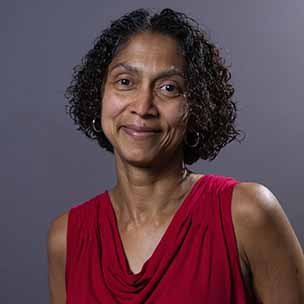BLOOMINGTON, Ind. – Distinguished Professor Kosali Simon of the Paul H. O’Neill School of Public and Environmental Affairs has been appointed by the National Academies of Sciences, Engineering, and Medicine’s Committee on National Statistics to serve as chair for a panel of experts that will produce a report on data infrastructure for measuring the care economy.
The panel will assess the current data available on the care economy considered broadly, including care givers, care for adults and children, long-term care, and intersections with both the health care and education sectors. This study will provide conclusions and recommendations on the potential for improving, expanding, and integrating the care data infrastructure to more fully understand the care economy in the United States.
“I’m excited to get to work with a wonderful set of committee members on this important topic,” Simon said.
The care economy encompasses all forms of care work, paid and unpaid, that are essential for the well-being and functioning of society. It highlights the critical role of caregivers and institutions in maintaining the social fabric. The care economy is vital as it underscores the importance of nurturing and supporting individuals throughout different stages of life, thereby contributing to the overall socio-economic development.
The study will also consider a host of issues, including:
- Key efforts, questions, and measurement needs for examining the care economy
- Existing data collection programs, including cross-sectional and longitudinal data sets, and data gaps in those programs, particularly in federal economic statistics
- Standardized definitions for the care economy (along the entire spectrum of human care requirements), caregivers, caregiving, the size of the care sector, differences between paid and unpaid care, and formal and informal markets for care
- How to operationalize care needs to capture both intensity of need and what constitutes unmet need
- Methods to measure care provided within extended families and other networks beyond conventional household units
- The potential for using state and federal administrative records, and commercial data in addition to surveys to enhance knowledge of the care economy


